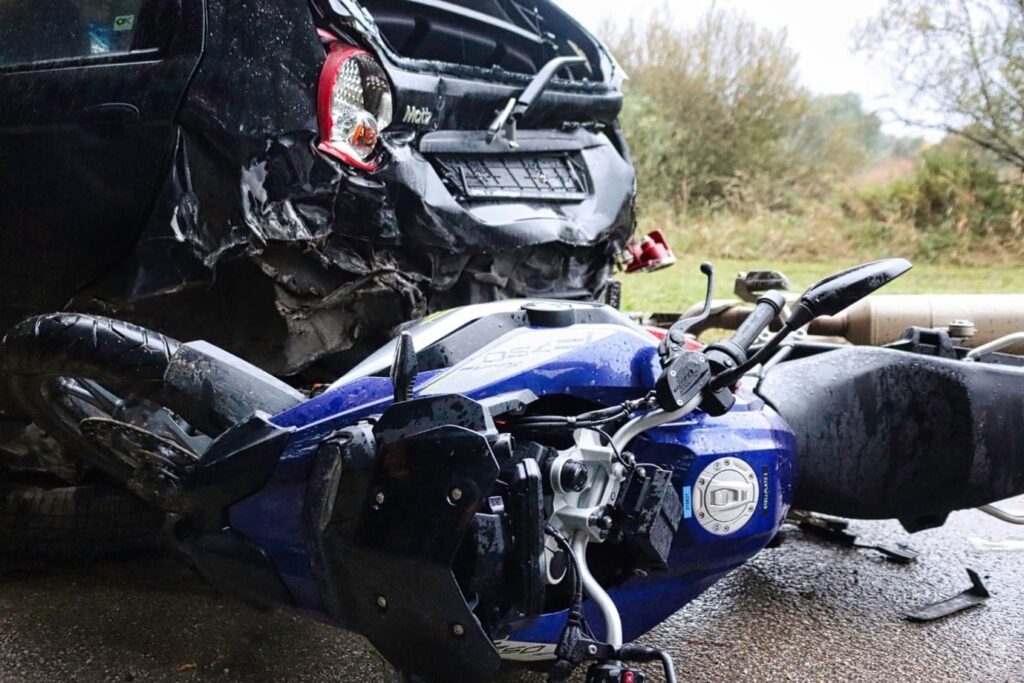Property Damage Claims in Motorcycle Accidents: The Basics

Although motorcycling can be an exciting experience, risks are also involved. Motorcycle enthusiasts’ most common concern is the potential for property damage in an accident.
Understanding how to navigate property damage claims is crucial for any rider to ensure they can effectively recover and return to the road. A motorcycle accident lawyer can guide you through the claim process. A lawyer can help you understand your rights and options after a motorcycle accident.
This extensive guide will dive deep into the essentials of property damage claims in motorcycle accidents, offering detailed steps, tips, and insights to protect your interests.
Common Types of Property Damage in Motorcycle Accidents
Understanding the scope of property damage in motorcycle accidents prepares you to handle the aftermath effectively and comprehend what to look for when assessing the situation.
1. Damage to the Motorcycle
Motorcycle damage is often the most prominent and immediate area of concern. The damage to your motorcycle’s aesthetic, functional, or structural elements should be thoroughly inspected and documented. This damage can range from superficial scratches to severe structural disruptions, and the repair or replacement cost should reflect the impairment’s full extent.
2. Damage to Personal Belongings
In many cases, riders carry personal items such as helmets, electronic devices, or personal attire that might be damaged during an accident. These possessions carry their value and must also be accounted for in your property damage claim.
3. Damage to Other Vehicles or Property
Addressing these damages can be complicated if the motorcycle accident involves other vehicles or third-party property. It requires clear assessment and cooperation with the other parties to ensure all damages are cataloged and rectified reasonably.
Tips for a Successful Property Damage Claim
There are many subtleties of managing property damage claims in motorcycle accidents, but a handful of strategic tips can enhance your prospects of a successful claim resolution.
These include:
1. Documenting the Accident Scene

The first step to a successful property damage claim is thorough accident scene documentation. Take pictures of your motorcycle and any other cars or items that were a part of the collision. Ensure you get clear shots of any damages sustained, which will serve as crucial evidence for your claim.
2. Seeking Medical Attention
Even if you feel fine after an accident, seeking medical attention to rule out potential injuries is essential. Not only is this necessary for your well-being, but it also provides documented evidence of any physical harm sustained in the accident.
3. Contacting a Motorcycle Accident Lawyer
Collaborating with the best motorcycle accident lawyer near your location is critical to navigating the legal complexities of property damage claims effectively. An experienced lawyer can help you navigate the process and safeguard your rights, improving the likelihood of your claim being resolved satisfactorily.
4. Understanding Your Insurance Coverage
Understanding your coverage is crucial, whether it’s your motorcycle insurance or that of another party involved in the accident. A skilled motorcycle accident lawyer can assist you in navigating the insurance landscape and ensure you receive the compensation you are entitled to.
Feel Confident
Property damage claims following a motorcycle accident are more than just an administrative task. They require thorough understanding, expert guidance, and strategic handling to protect your rights and receive the compensation you deserve.
If a motorcycle accident has happened to you or a loved one, contact a knowledgeable motorcycle accident lawyer as soon as possible. With their help, you can navigate the complex legal process and focus on recovering from the accident.
Be sure to seek a skilled attorney today to protect your interests and secure the best outcome for your property damage claim. In addition, they will protect you from insurance adjusters and their tactics to reduce your compensation.

Pranab Bhandari is an Editor of the Financial Blog “Financebuzz”. Apart from writing informative financial articles for his blog, he is a regular contributor to many national and international publications namely Tweak Your Biz, Growth Rocks ETC.







